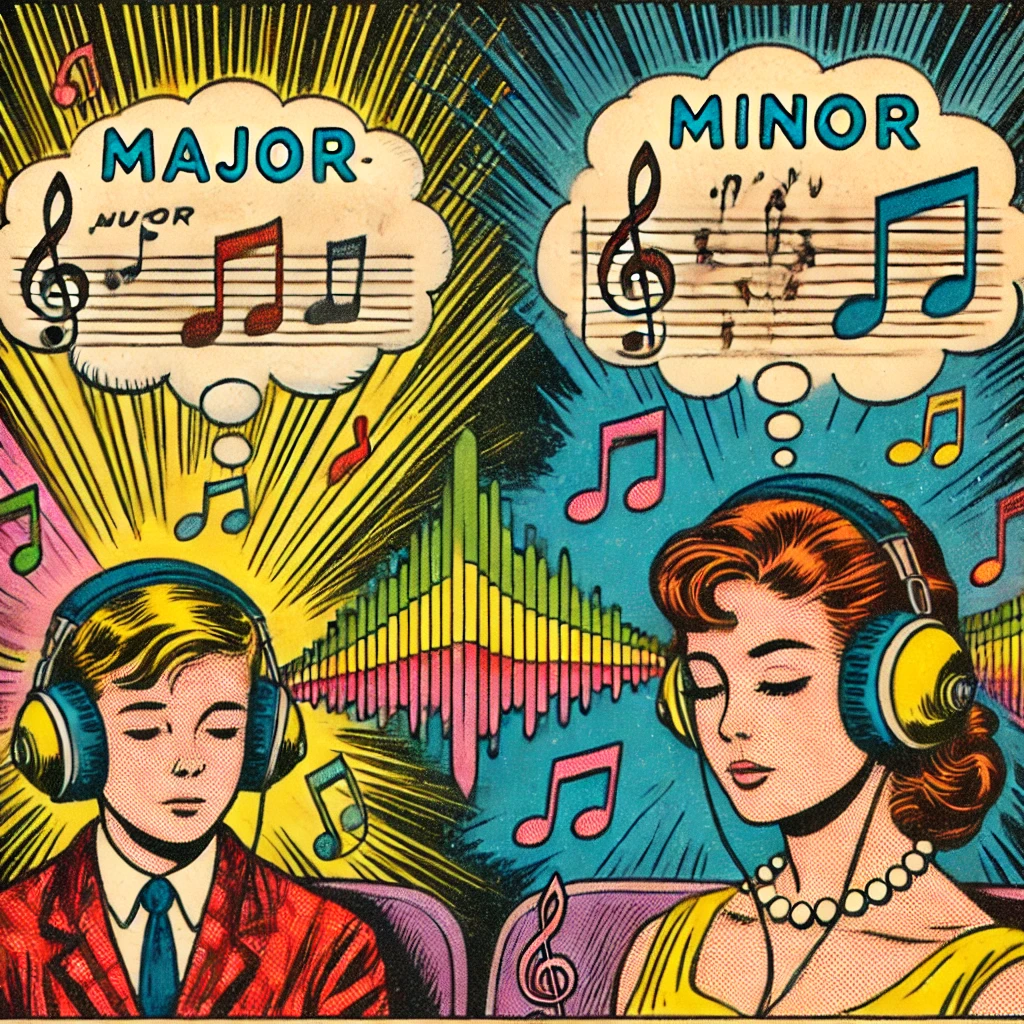Affective constraints on acquisition of musical concepts
Abstract
Across cultures and age groups music has a powerful impact on human affective states. We examined the effect of these affective responses on children’s and adults’ ability to label musical excerpts as major or minor.
Content
Affective constraints on acquisition of musical concepts: Children’s and adults’ development of the major-minor distinction
Clarissa A. Thompson
University of Oklahoma, USA
John E. Opfer
The Ohio State University, USA
Clarissa A. Thompson, University of Oklahoma, 455 W. Lindsey St., 705 Dale Hall Tower, Norman, OK 73019, USA. Email: cat3@ou.edu
Abstract
Across cultures and age groups music has a powerful impact on human affective states. We examined the effect of these affective responses on children’s and adults’ ability to label musical excerpts as major or minor. Adults, 10-year-olds, and 5-year-olds rated affective quality of excerpts that differed by mode, tempo, pitch, and excerpt type and then categorized the excerpts by mode. Trial-by-trial assessment of category judgments indicated performance was accurately predicted by subjects’ association of affective valence with musical properties. Specifically, strength of this association prior to training predicted greater category knowledge, types of errors, and age differences in learning.
The acquisition of musical concepts, such as the major-minor tonality distinction, is influenced by various cognitive, developmental, and affective factors in both children and adults. Here are some key points regarding affective constraints on the acquisition of musical concepts, particularly the major-minor tonality distinction:
- Emotional Response to Music: Affective responses to music play a crucial role in shaping individuals’ perception and understanding of musical concepts, including tonality. Research suggests that even young children demonstrate sensitivity to the emotional qualities of major and minor musical modes, associating major keys with happiness or brightness and minor keys with sadness or darkness.
- Developmental Trajectories: The development of the major-minor distinction evolves over time and is influenced by cognitive and emotional development. Infants and young children may initially demonstrate a preference for consonant, harmonically simple musical structures, while older children and adults develop more sophisticated perceptual and emotional responses to tonal ambiguity and tension-resolution in music.
- Cultural Influences: Affective responses to music are shaped by cultural norms, values, and musical conventions. The association of major keys with happiness and minor keys with sadness is culturally contingent and may vary across different musical traditions and cultural contexts.
- Music Education and Exposure: Exposure to music education and training can enhance individuals’ awareness and understanding of tonal concepts such as major and minor keys. Formal instruction in music theory, ear training, and music listening can help children and adults develop perceptual skills and analytical strategies for recognizing and interpreting tonal relationships in music.
- Individual Differences: Individual differences in affective sensitivity, musical aptitude, and prior musical experience can influence the acquisition of musical concepts. Some individuals may demonstrate heightened emotional responsiveness to music, while others may exhibit greater analytical or cognitive engagement with tonal structures.
- Interactive Learning Contexts: Affective constraints on the acquisition of musical concepts are mediated by interactive learning contexts that provide opportunities for exploration, experimentation, and social interaction. Collaborative music-making, improvisation, and peer feedback can foster emotional engagement and facilitate learning of tonal concepts in children and adults.
- Neurobiological Mechanisms: Affective responses to music involve complex neurobiological mechanisms, including the activation of limbic and reward-related brain regions implicated in emotion, motivation, and pleasure. Neuroimaging studies have identified neural correlates of emotional processing in response to major and minor musical modes, shedding light on the underlying brain mechanisms involved in affective constraints on musical concept acquisition.
Overall, affective constraints on the acquisition of musical concepts, such as the major-minor tonality distinction, reflect the interplay between cognitive, developmental, cultural, and emotional factors in shaping individuals’ perception, interpretation, and emotional response to music across the lifespan. Understanding these affective constraints can inform music education practices and enhance the effectiveness of music instruction in promoting musical literacy and appreciation.
